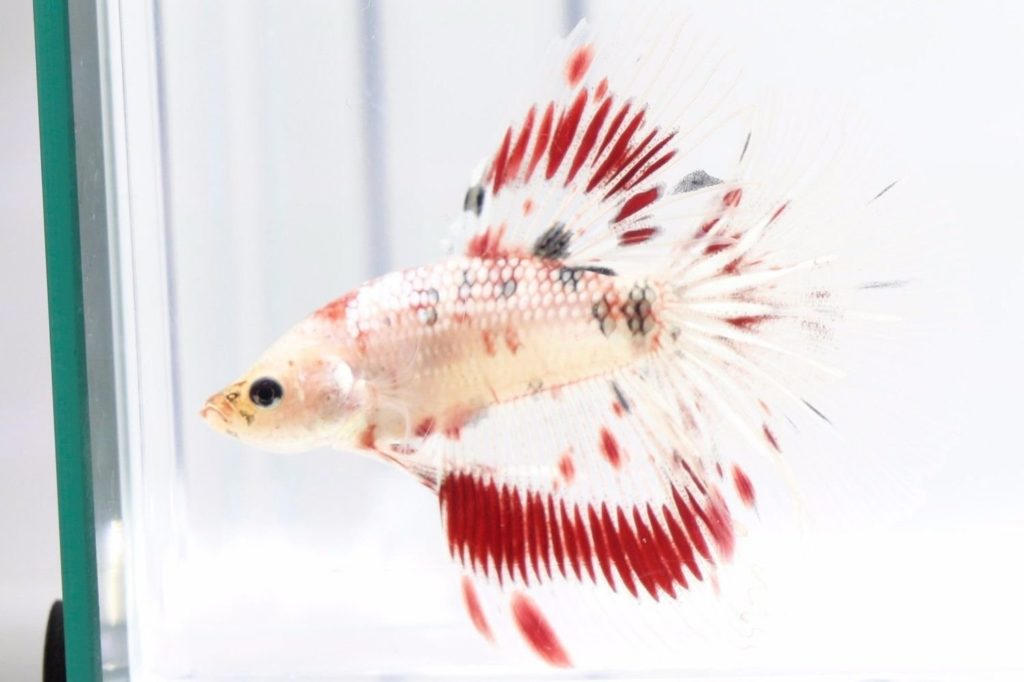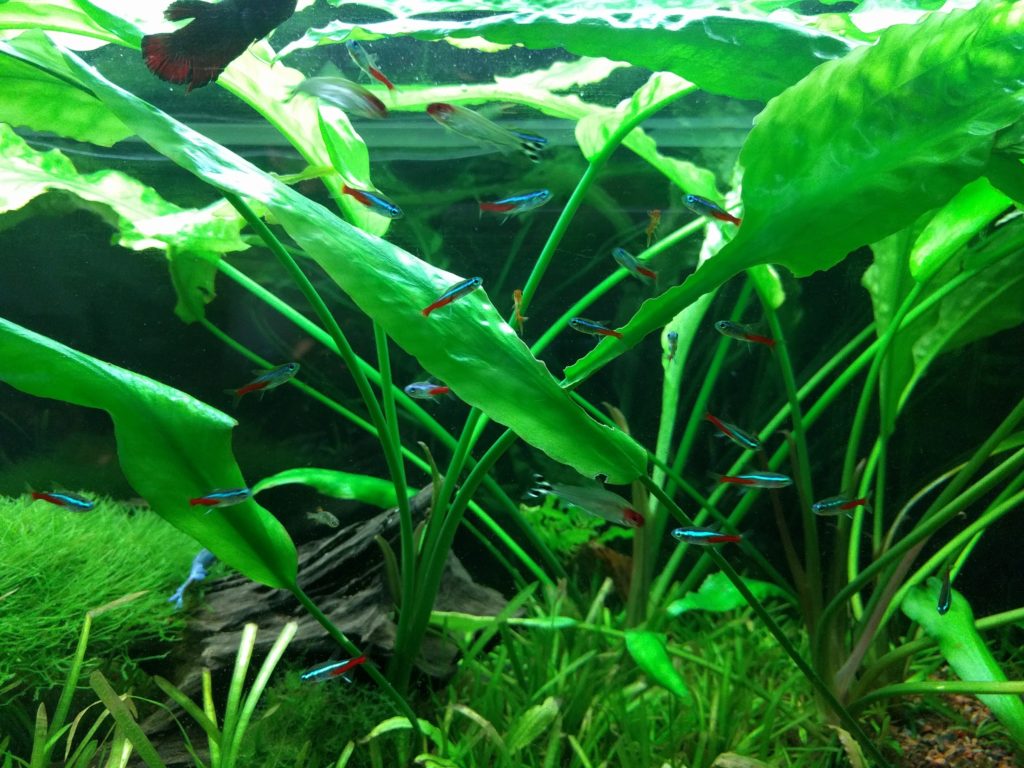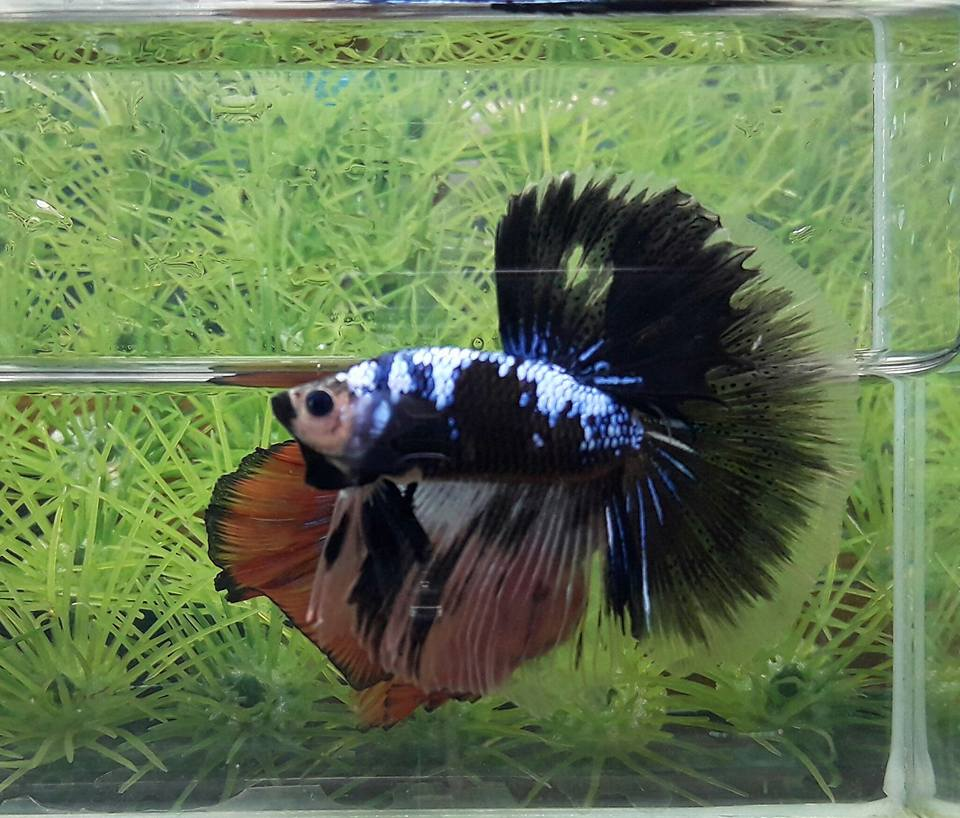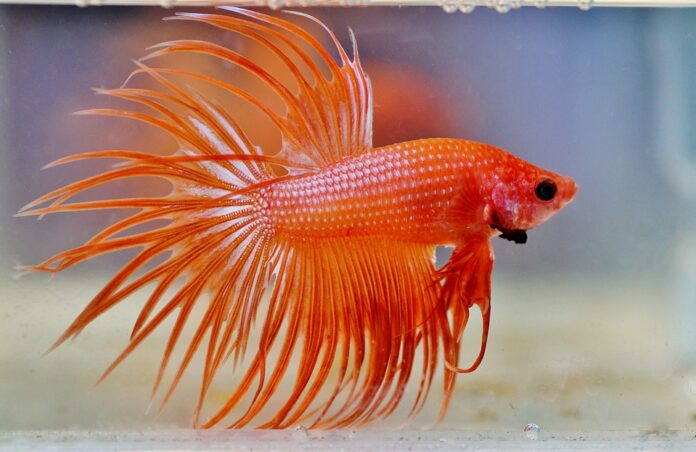[sc_fs_multi_faq headline-0=”p” question-0=”1 – What is the Betta fish life span?” answer-0=”There are different answers on this question about Betta Fish. Based on what I know of, a betta fish’s lifespan is 4-5 years in captivity. Some say 3-4 years, while some say 4-6 years. Many stores don’t sell the Bettas till they are 6-10 months of age so that they will have the long, flowing fins and strong, rich colors that would attract buyers. So be aware that by the time you buy your Betta, he could already be nearly a year old.” image-0=”” headline-1=”p” question-1=”2 – Can a Betta fish live in a jar?” answer-1=”I think the real question here is: should a Betta fish live in a jar? The answer, in short, is no. It is a very common misconception that Bettas don’t require a lot of space. While it is true that Bettas in the wild live in shallow waterways, those waterways are huge. Bettas need a lot more room than what a vase can offer.” image-1=”” count=”2″ html=”true” css_class=””]
1 – Betta Fish Lifespan.
There are different answers on this question about Betta Fish. Based on what I know of, a betta fish’s lifespan is 4-5 years in captivity. Some say 3-4 years, while some say 4-6 years. Many stores don’t sell the Bettas till they are 6-10 months of age so that they will have the long, flowing fins and strong, rich colors that would attract buyers. So be aware that by the time you buy your Betta, he could already be nearly a year old.
2 – Can a Betta fish live in a jar?
I think the real question here is: should a Betta fish live in a jar? The answer, in short, is no. It is a very common misconception that Bettas don’t require a lot of space. While it is true that Bettas in the wild live in shallow waterways, those waterways are huge. Bettas need a lot more room than what a vase can offer. In a smaller space, the water quality becomes toxic and dangerous very quickly for the fish. Smaller fish environments require so much more care. Bettas love to swim and are active. 10 gallons of water is ideal, however it should NEVER be less than 5 gallons.
3 – What do Betta fish eat and how often should I feed it?
Betta Fishes are tropical fishes from Asia. Their natural environment is very warm so they need temperature levels between 78-82F degrees. They can survive in lower temperatures, but they will become more susceptible to illnesses and are more likely to be lethargic. If you live in a warm climate, you may not need to use a heater all year round if the temperature is consistently 78F or above. If your home temperature fluctuates, during the winter months, be sure to add a heater to the Betta’s tank.

4 – Do Betta fishes need a heater?
Bettas love to eat! Because they are always begging for food, overfeeding can easily become a problem. You should feed a Betta two times a day. If you feed more, the Betta will, of course, eat! Once in the morning and once at an early evening, which are the ideal times to feed them. You need to feed your Bettas with a wide variety of food. Giving them a varied balanced diet will go a very long way to keeping them healthy. They like to eat:
Betta Pellets
Blood Worms
Daphina
Brine Shrimp
Mysis Shrimp
These foods could be fed as live food or frozen. If you use frozen be sure to defrost it before giving it to your Betta fish. Do not use hot water to defrost the food. Freeze-dried food is an additional alternative, but should only be fed as a treat. It can cause bloating if the Betta is fed excessively and frequently.
5 – Do Betta fish need a filter?
If I do not have a filter, then I would go through 80-100% of water changes three times a week. This maintains great water quality, where it is needed to be for a healthy active Betta. This requires commitment and a lot of work. Using a filter is far better for your Betta. The tanks over 2.5 gallons all have filters and I do 25-30% water changes once a week. When using a filter in a Betta tank, the biggest issue is keeping an eye on the current flow.
Bettas don’t like fast flowing water and will have difficulty swimming. If the filter is too strong it can even drag the Betta into the intake tube and the fish may drown. Great care should be taken when choosing a filter for your Betta. Sponge filters are an excellent option for Bettas as the flow may be adjusted for them. If you choose not to use a filter, then keeping a Betta is a bigger responsibility as you will need to do more water changes per week. All my tanks are 5 gallons or over and have sponge filters.

6 – Can a Betta fish live with other fish?
Bettas can generally live with other peaceful community fish; however, there are never any guarantees. Bettas can be very aggressive. They are very territorial. The introduction should be done slowly and carefully. Some good tank mates are usually Platies, female guppies and Corys. For more in-depth information visit … Can Betta Fish other fish.
7 – Can Bettas live together?
Male Bettas can not accept each other. They need to be kept in separate tanks where they can’t see each other. If they can see each other for extended periods of time they will become very stressed. If males are kept together, they will fight to the death, hence the name Siamese Fighting Fish. Female Bettas can sometimes live in groups of 5 or more if the tank is heavily planted and they have adequate space. According to most aquarists a 10-gallon tank as a minimum, however, I personally would recommend 20 gallons.
My females live very comfortably in a heavily planted 20-gallon tank. When putting groups of females together, the process needs to be done gradually and carefully. They need to be left acclimating in cups beside each other for a long period of time. This helps condition them to other female company. Just remember that where Bettas are concerned, there are never any guarantees, and you must be prepared that the females may all need separate tanks to live in. The decision to try and have females living together should not be taken lightly.
8 – Do I need to cycle a Betta fish tank?
This question is probably one of the most talked-about and disagreed upon out of all of them. We will be giving you our views and the way we do things based upon over 20 years of fish keeping. , if you are not using a filter there is nothing to cycle. Cycling means to develop beneficial bacteria in the filter primarily although bacteria do also build up in the gravel and on aquarium decorations. We do fish cycles. It simply requires patience and care. Cycling your tank takes time, so don’t rush it. It will save you more time in the long run and leave you without any dead fish. A tank usually takes 4-6 weeks to cycle properly. Doing small regular water changes plays a big part in helping the tank cycle. Once the tank is cycled, you can’t add a ton of fish, otherwise, the tank will go out of balance very quickly and you will have to start all over again. Add 2-3 fish at a time, keeping a very close watch on your water parameters at the same time. Testing your water regularly is essential.

9 – Why do my Betta’s fins get ripped?
Betta fins are very delicate. They have gorgeous flowing fins– that’s why we like them? If the tank is not kept clean, they can get damaged very easily and this can then cause secondary problems including bacterial infections especially. This can all be prevented by keeping your water quality at its best and selecting tank decorations that are very soft and have no rough surfaces. The most common cause of fin damage is unsuitable tank decorations. Another cause may be airstones. Airstones often have a very rough surface and Bettas often like to play at the origin of bubbles. Be sure to have your airstones buried under the substrate or hidden inside a decoration. Decorations such as live plants or silk plants are a good choice. Plastic plants are more likely to rip their fins.
10 – How often should I clean the tank?
This is dependent on the size of the tank and whether you have a filter or not. Tanks under 2.5 gallons without any filter should be cleaned a minimum of three to four times a week, removing 80-100% of the water. If you have a filter in the tank, it should be cleaned once a week. Remove 25-30% of the water and clean the gravel. Once a month, the filter should be cleaned up using aquarium water. If you use tap water, you will kill all the beneficial bacteria that’s built up in your filter. Tank maintenance varies from tank to tank based on the number of fish are in a tank and whether there are live plants, but as a standard rule, water changes should be done every week.


